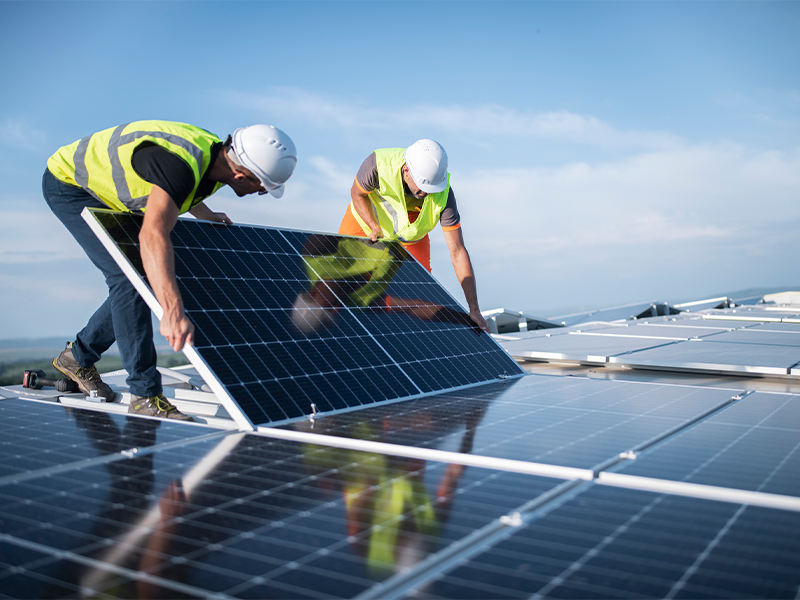Exactly How Solar Energy Can Help You Save Cash and Reduce Your Carbon Impact
The assimilation of solar power right into your energy profile presents an engaging opportunity for both financial cost savings and environmental stewardship. As numerous government motivations end up being available, the inquiry occurs: just how can one successfully browse the preliminary financial investments and recurring benefits of solar innovation to optimize both financial and environmental gains?
Recognizing Solar Power Financial Savings
While the change to solar power commonly involves an initial financial investment, understanding solar power financial savings is essential for house owners and businesses alike. Solar energy systems can significantly decrease power bills by taking advantage of the sunlight's energy, converting right into substantial long-lasting monetary advantages. By creating their very own electricity, individuals lessen dependence on grid power, which undergoes varying rates. These savings can build up gradually, usually leading to a rapid return on financial investment.
Furthermore, solar power systems may get various monetary rewards, including tax credit histories and refunds, even more enhancing their cost-effectiveness. The availability of internet metering enables users to market excess energy back to the grid, developing an extra revenue stream. These factors add to the total cost savings connected with solar energy.

In addition to route financial savings, solar power provides the added benefit of raising property value. Homes equipped with solar panels are frequently a lot more eye-catching to purchasers, as they guarantee lower energy prices - Simply Solar Illinois. Comprehending these aspects is vital for anybody thinking about solar power, as it highlights not just the prospective monetary gains, however likewise the wider ecological and economic benefits of embracing renewable power remedies
Preliminary Prices vs. Long-Term Conveniences
When examining solar power, it is very important to weigh the initial costs versus the lasting benefits. The upfront financial investment for solar panels, installation, and related equipment can be significant, often varying from $15,000 to $30,000, relying on the system size and home power demands. This first expense may deter some home owners; nevertheless, it is important to consider the possible cost savings over time.
When installed, solar power systems can substantially lower or even eliminate regular monthly electrical power bills, bring about considerable lasting monetary advantages. Studies show that house owners can save anywhere from $10,000 to $30,000 over the lifespan of their solar system, typically 25 years. Furthermore, many states use incentives, tax credits, and refunds that can counter initial prices, making solar much more obtainable.

Decreasing Your Carbon Impact
Minimizing your carbon impact is an important consideration in today's eco conscious culture, and adopting solar energy is just one of one of the most reliable approaches to achieve this objective. Solar energy is a tidy, renewable energy that dramatically diminishes dependence on fossil gas, which are major factors to greenhouse gas exhausts.

Furthermore, the extensive adoption of solar innovation encourages the advancement of green jobs and sustains developments in power storage and performance. The more people and organizations invest in solar energy, the greater the cumulative decrease in carbon emissions, cultivating a cleaner ambience for future generations.
Government Incentives and Refunds
Taking on solar power not only profits the environment however can additionally result in substantial financial savings, specifically with the accessibility of government motivations and refunds. Various federal, state, and local programs are created to encourage homeowners and organizations to purchase solar power systems, making the shift extra budget-friendly.
Among one of the most prominent rewards is the Federal Financial Investment Tax Obligation Credit Score (ITC), which permits solar system owners to deduct a substantial portion of the installation expenses from their government tax obligations. This reward has actually been crucial in reducing the ahead of time expenses connected with solar energy systems. Additionally, numerous states provide their own tax credit histories, grants, and refunds that can additionally improve cost savings.
Moreover, some city governments give real estate tax exceptions for solar installments, making certain that house owners do not encounter boosted building tax obligations as a result of their renewable resource financial investments. Utility read more companies might likewise provide incentives, including internet metering and feed-in tariffs, which allow solar power customers to offer excess power back to the grid.
Choosing the Right Planetary System
Choosing the ideal planetary system is vital for making best use of energy efficiency and economic benefits. The choice rests on a number of factors, consisting of energy demands, budget plan, and readily available space. Homeowners need to begin by assessing their power usage to figure out the system size required for optimal efficiency.
Next, take into consideration the different kinds of solar innovations offered. Simply Solar Illinois. Photovoltaic (PV) panels are one of the most usual, transforming sunshine directly into electrical energy, while solar thermal systems concentrate on home heating water. Each type has distinctive benefits relying on private requirements
Budget plan factors to consider are also paramount. Preliminary installment costs can vary significantly, so it's crucial more information to contrast quotes from multiple carriers and explore financing alternatives. Government rewards and refunds can additionally reduce the monetary worry, making solar systems extra available.
Verdict
The environmental advantages of solar power add to sustainable practices important for combating climate adjustment. Federal government motivations improve the expediency of solar technology adoption, motivating a transition towards a cleaner, more economically reliable power source.